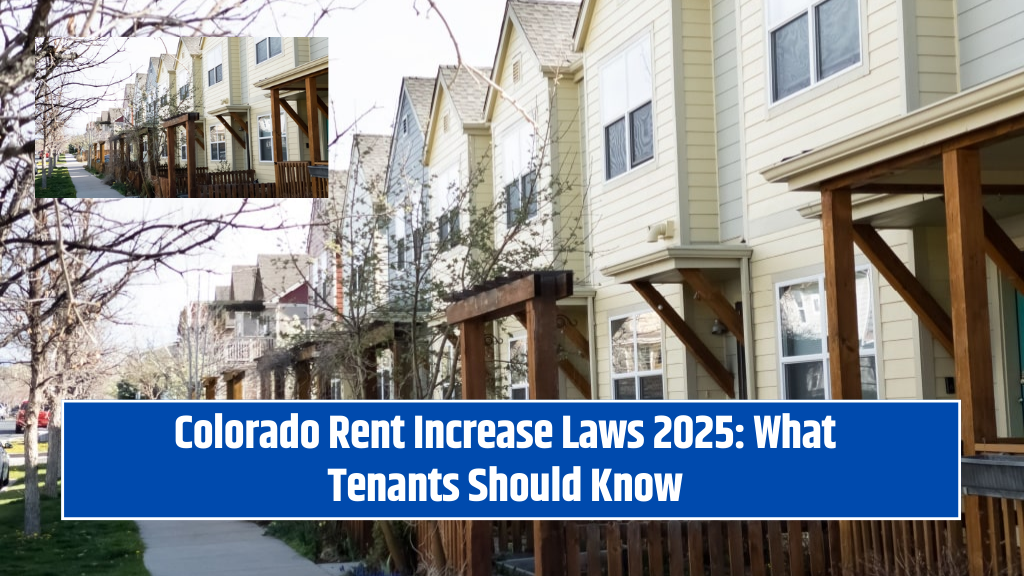In Colorado, landlords of mobile home parks have the right to raise rent, but only if they follow strict rules. While there’s no statewide cap on how much rent can increase, the law protects residents with clear notice periods and limits on how often rent can go up. If you live in a mobile home park, knowing these laws can help you avoid unfair rent hikes and understand your rights.
No Rent Cap, But One Increase Per Year Allowed
Colorado law does not set a maximum amount for rent increases in mobile home parks. However, a landlord can only raise your rent once every 12 months during continuous occupancy, no matter your lease type (monthly, yearly, or no written lease at all). This rule applies to all residents of the park.
60 Days’ Advance Written Notice Required
Before any rent increase takes effect, landlords must give at least 60 calendar days’ written notice. This requirement applies even if you’re on a month-to-month lease or don’t have a written lease at all.
The notice must include:
- The amount of the new rent
- The effective date the new rent will begin
- The owner’s contact details (if not already in the rental agreement)
Situations Where Rent Increases Are Not Allowed
A landlord cannot increase rent or issue a notice of rent increase if:
- The park is not registered with the Mobile Home Park Oversight Program (MHPOP)
- The landlord owes unpaid penalties to MHPOP
- There’s an unresolved court or agency order against the park
- The park failed water quality inspections and missed the deadline to fix it
- The park violated maintenance laws and received a final order within the past 12 months
In these cases, the landlord must correct the issue first and only then can issue a new rent increase notice with 60 days’ notice.
If a Rent Increase Was Sent by Mistake
If a rent increase was announced while the park was out of compliance with the law, it is considered invalid. Here’s what should happen:
- The landlord must inform residents the rent increase will not take effect
- If anyone already paid the increased amount, a refund must be issued
- Once the issue is fixed, a new notice may be sent for a future increase (still requiring 60 days’ notice and at least 12 months since the last increase)
What About Initial Lease Agreements?
Month-to-Month Leases
If you signed a month-to-month lease, the landlord can raise your rent within the first year as long as:
- They provide 60 days’ written notice
- The park is fully compliant with all legal requirements
This is because the first lease sets the base rent and doesn’t count as a “rent increase” yet.
Long-Term Leases
If you have a lease for a specific time period (e.g., one year), the landlord cannot increase the rent until that lease ends. The lease agreement is legally binding and protects the rent rate for its entire term.
Late Fee Rules
If you’re late with rent, the landlord can only charge a fee of:
- $50 or
- 5% of the overdue amount — whichever is greater
Homeowners have 10 days to pay late rent before a fee applies. Renters (those renting both the home and the lot) have 7 days.
What Landlords Must Do to Be in Compliance
To legally increase rent, landlords must:
- Submit all required registration documents to MHPOP
- Pay any outstanding penalties or fees
- Receive confirmation from MHPOP that their registration is active
- Issue a new rent increase notice with 60 days’ notice
Parks with pending registrations are not yet considered compliant, so any rent increase notices sent during this time are invalid.
How to Check a Park’s Registration
Residents can check the park’s status using MHPOP’s list of registered parks. If a park is marked as “pending,” it means the registration is still under review and rent cannot be increased yet.
If a landlord recently submitted registration documents and plans to issue a rent increase soon, they’re advised to contact MHPOP for timely processing.
While Colorado does not have a rent control cap for mobile home parks, it has strong rules in place to protect tenants. Landlords must follow proper procedures, including 60-day notices and a limit of one increase per year. If a park is not fully compliant with the law, any rent increase is invalid until all issues are resolved. As a tenant, understanding these protections can help you stand up for your rights and avoid paying unfair rent increases.














